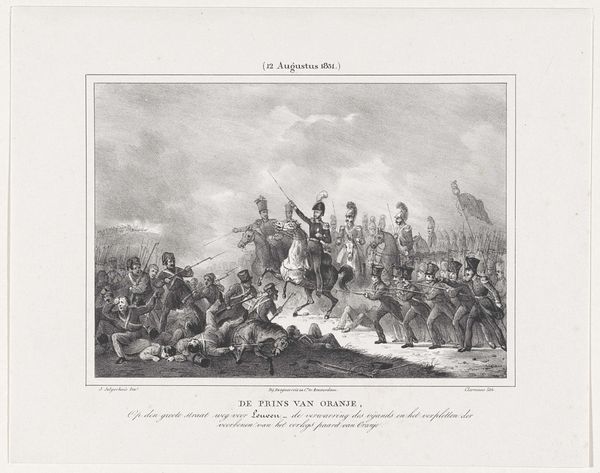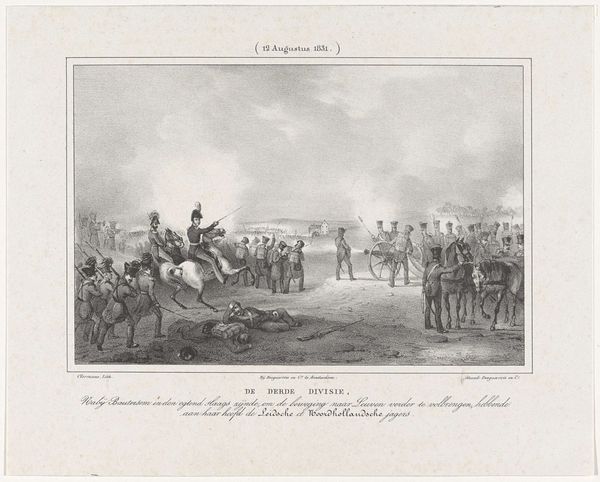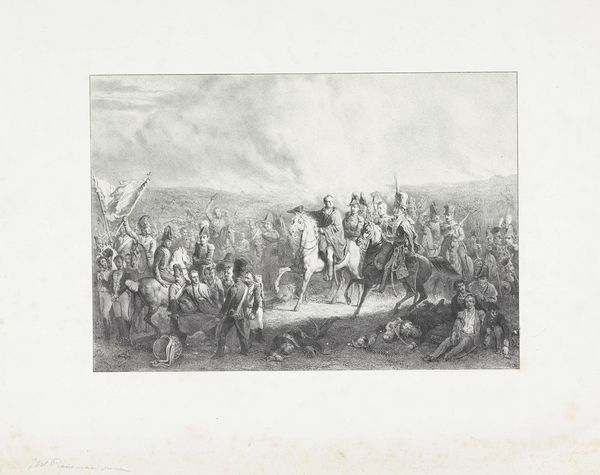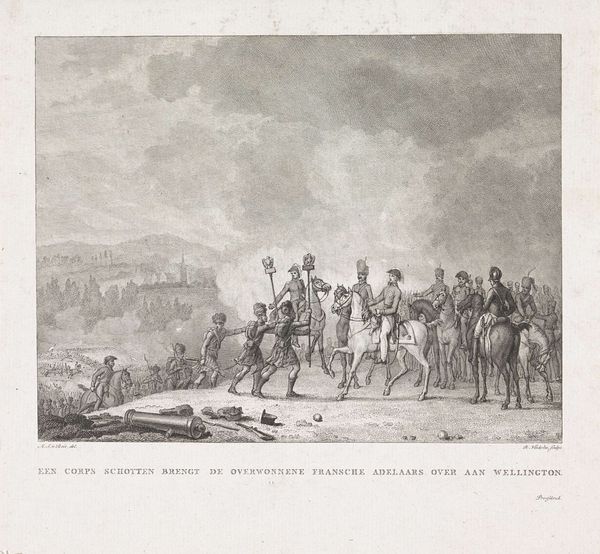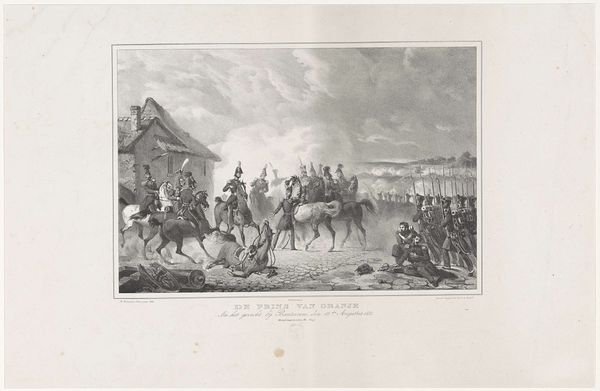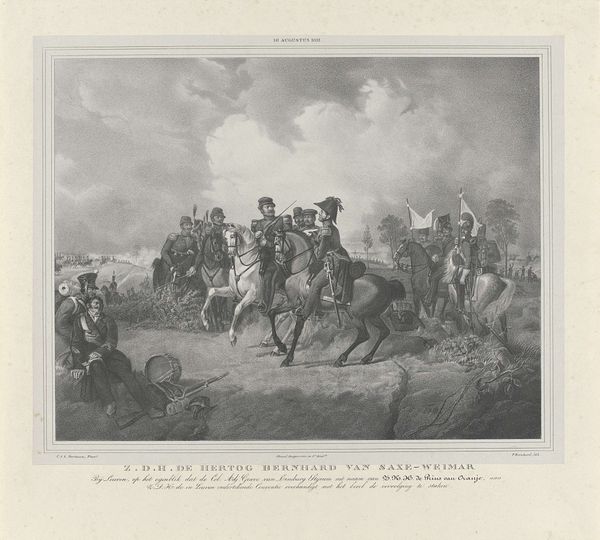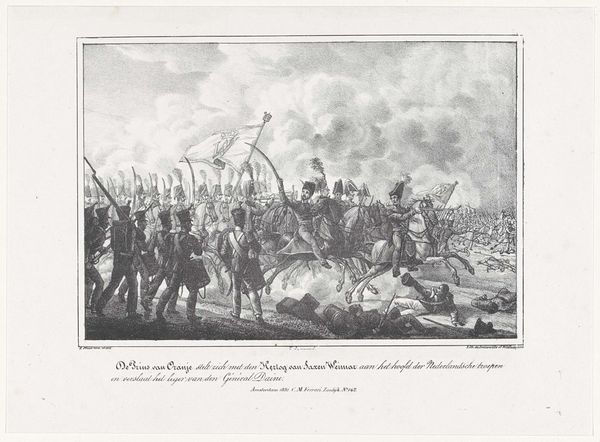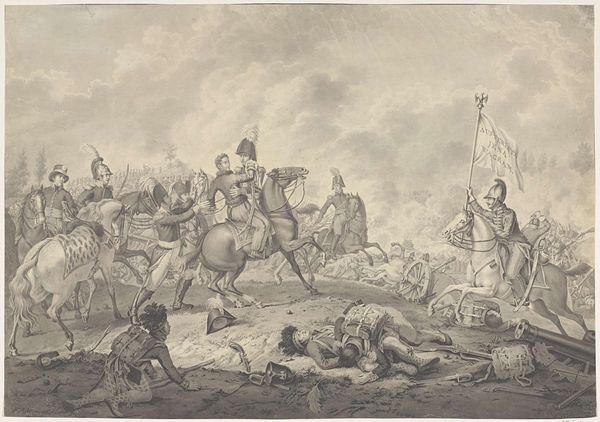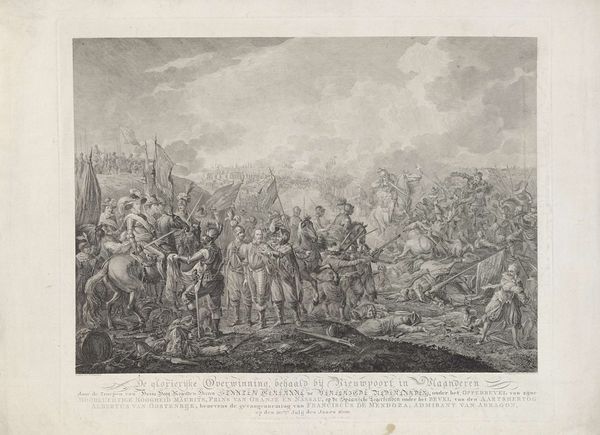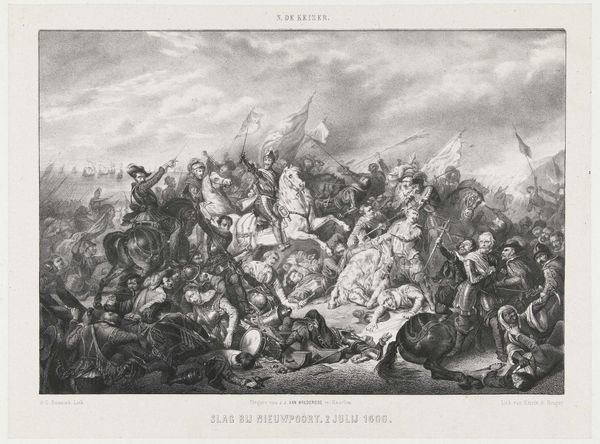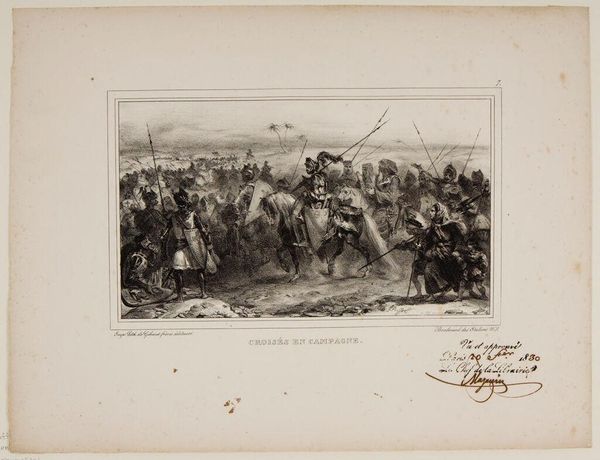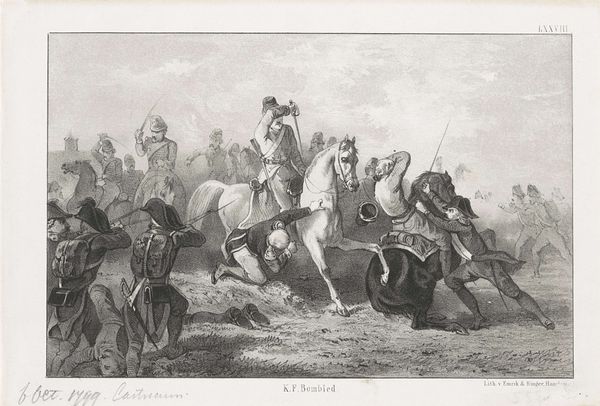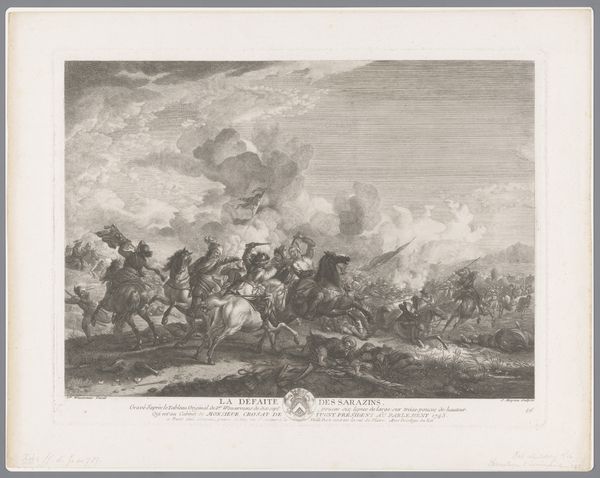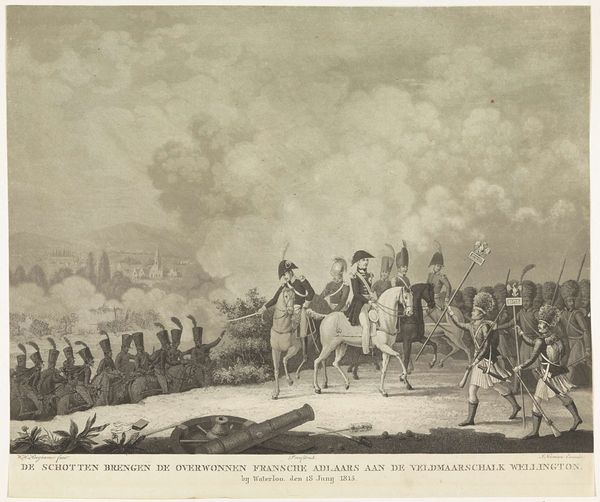
print, engraving
#
narrative-art
# print
#
landscape
#
figuration
#
romanticism
#
history-painting
#
engraving
#
monochrome
Dimensions: height 232 mm, width 281 mm
Copyright: Rijks Museum: Open Domain
Curator: Welcome, let's explore this fascinating engraving. Editor: Thanks! So, here we have "De Prins van Oranje en prins Frederik leiden de Nederlandse troepen, 1831," created by J.B. Clermans in 1831. It’s a monochrome print showing a historical scene, very busy with figures. What strikes me is the implied chaos contrasting with the formal setting - like a carefully orchestrated storm. What do you see in this piece? Curator: It’s more than just a battle scene, isn't it? I sense an almost theatrical grandeur, that’s typical of romanticism. It is interesting how Clermans uses the linear precision of engraving to depict such a tumultuous event. The light and shadow play creates such depth, a sense of almost endless lines of troops fading into the misty background. Editor: Definitely, there’s that very strong foreground with defined figures fading into a blurred mass in the background. How would this engraving be perceived in its time? Was it glorifying war, or just documenting? Curator: I suspect both. It presents war, yes, but focuses on leadership. Notice how the Princes are centrally positioned, directing the action almost serenely amid the 'organized chaos.' It's Romantic, therefore about strong feelings - courage, leadership and patriotic dedication above all, probably designed to bolster national pride during a period of upheaval. There's an interesting paradox, actually: this very detailed print could have spread quickly among the population, becoming a powerful propaganda tool. Does this maybe slightly shift your interpretation of the scene? Editor: That's a very helpful context to consider. It makes me see how seemingly objective depictions could be very intentional in their message. I had never thought about print as a powerful propaganda tool! Curator: Indeed. It’s a layered image that asks us to question its narrative. Editor: Absolutely! I think looking at the composition and understanding its context reveals so much more about the artwork's purpose. Thanks!
Comments
No comments
Be the first to comment and join the conversation on the ultimate creative platform.
